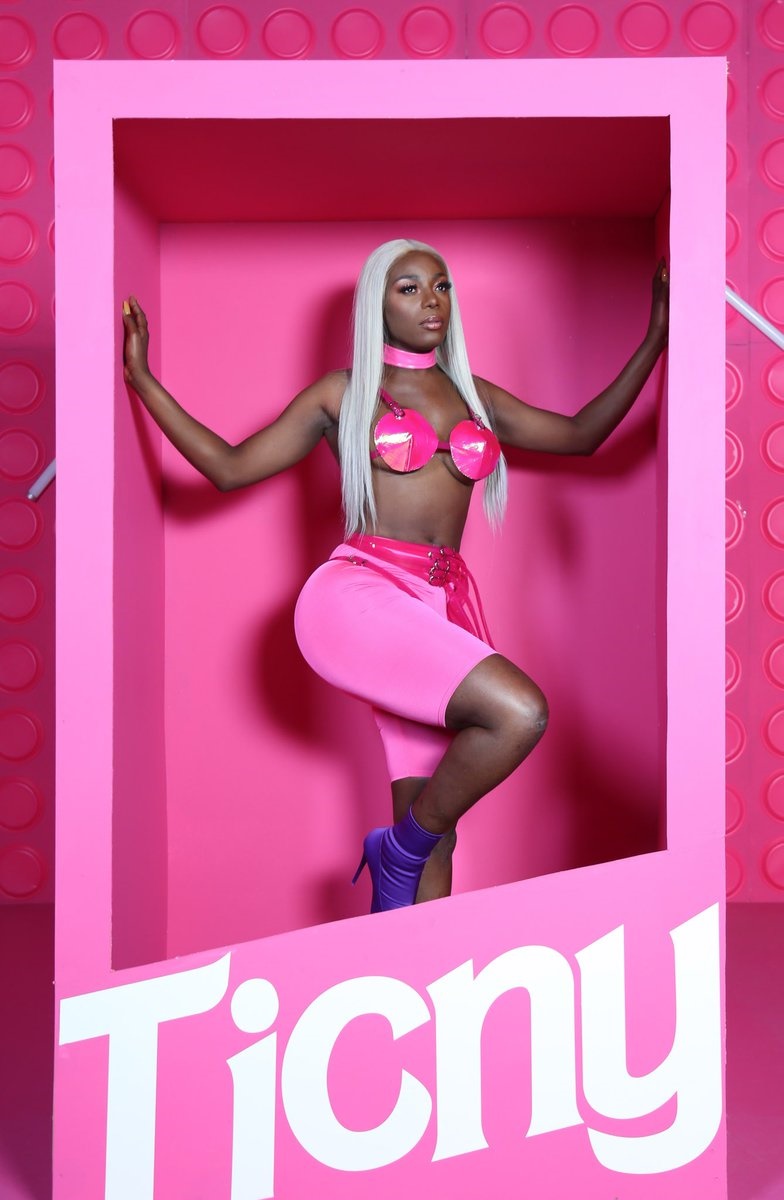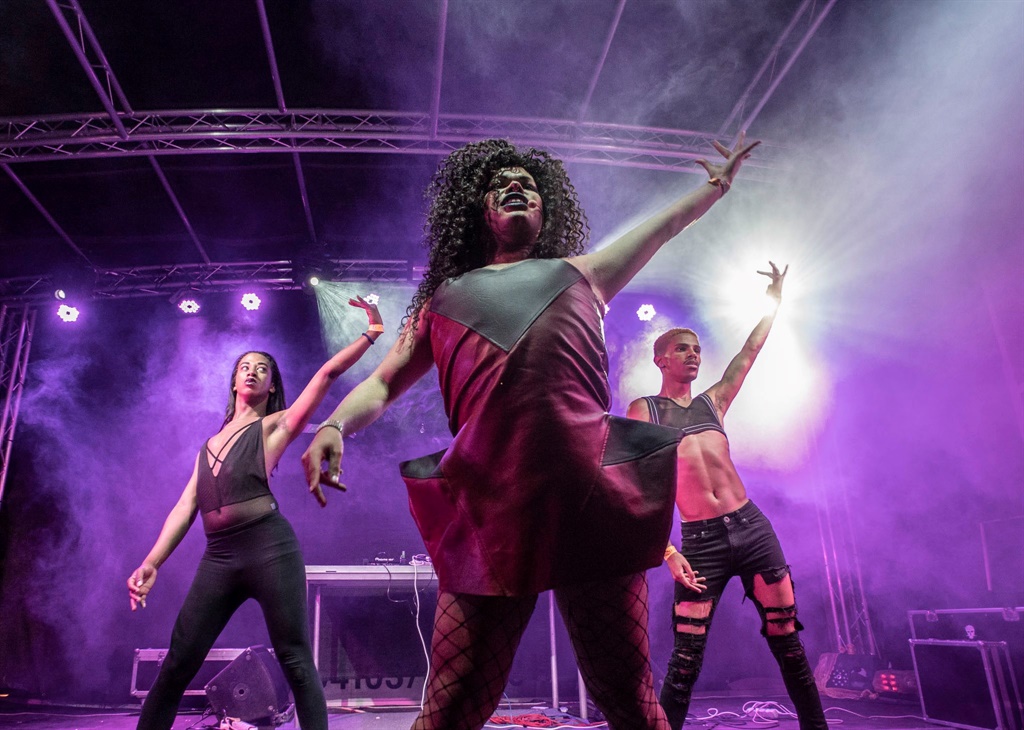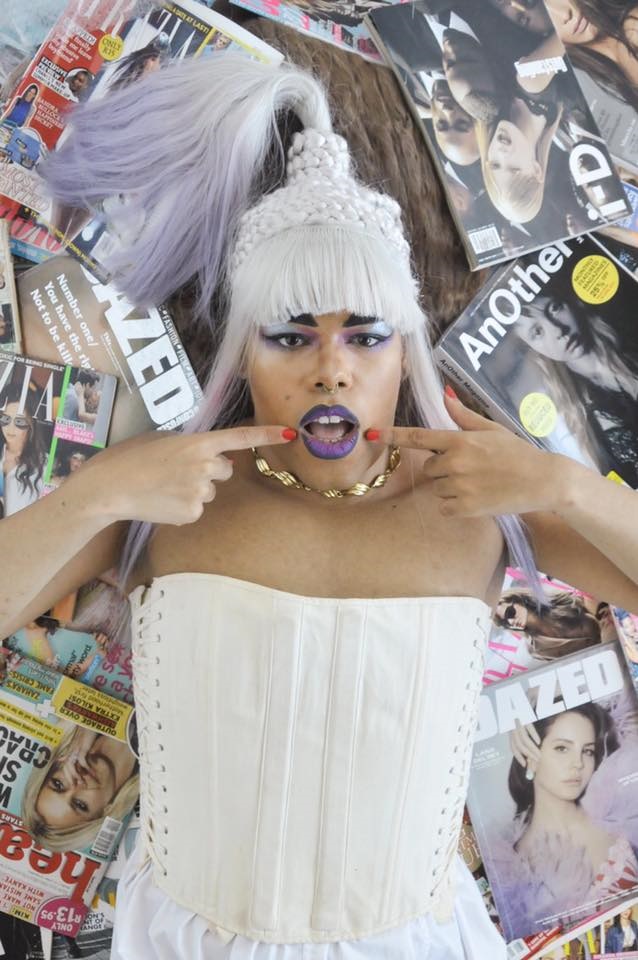Dance music has always enabled gender blurring, but for Africa’s transgender stars such as Angolan kuduro queen Titica and South African electronic music artiste Angel-Ho, the dance floor is also a battleground on which they fight against discrimination. Nickita Maesela chats to them.
Those on the fringes of society have always found refuge in song and, across the world, dance floors have always represented the freedom to express oneself.
However, outside the club, queer dance music stars often have to fight a political war for fans’ hearts. Titica and Angel-Ho, two transgender African musicians, are more than just performers – they’ve also had to be soldiers. In January, Angola finally revised its colonial-era penal code and decriminalised consensual same-sex acts between adults in private.
But, just as in South Africa, where democracy brought with it a Constitution that offered a raft of new freedoms for the LGBTIQ+ community, that doesn’t mean society is ready to embrace the diversity. But hearts and souls can be won through music.
TITICA, QUEEN OF KUDURO
Think Brenda Fassie and Lebo Mathosa and you begin to get a sense of the impact of Titica – one of Angola’s biggest pop stars – a bootylicious dancer and rapper in the kuduro tradition, where electronic music and rap have revised traditional beats for a new generation. The impact of kuduro is not unlike the power of kwaito in a post-apartheid generation.
But to flirt with a public lesbian identity is different to living your best transgender life in the glare of the national spotlight.
“The stigmas that are imposed on me as a trans woman are many. Like I say all the time, life is a struggle,” says the pop star in one of the many voice notes that comprise our interview.
Being a Catholic country and a former Portuguese colony, Angola’s laws discriminating against LGBTIQ+ people have been a part of a legacy of systemic oppression of the queer community.
Titica knows the realities of her society’s conservatism better than anyone.
“There are places where I am not allowed to perform, both in Angola and in other countries in Africa. Unfortunately, they haven’t been able to separate my sexual identity from my art and my music. Like I said, life’s a struggle. But I will continue to fight and stand my ground,” she affirms.
Born Teca Miguel Garcia in Luanda, Angola’s capital, the 32-year-old started her career as a back-up dancer for Noite e Dia, the biggest female voices in Angola’s music scene.
Named best kuduro artist of 2011, according to her online biography, it all began with a love of ballet, which lured a young Titica to begin training as a dancer.
Titica, who has taken her activist artistry global, says that her first major career spotlight was when she recorded her debut single, Chão, which means floor, in October 2011. It hit the local charts and stuck, and the floodgates to the hustle and grind were opened and the opportunities started pouring in – spurred on by a heavy rotation of videos on YouTube that a new generation was accessing.
Titica has always owned her politics. In 2013, she was appointed as a UNAids National Goodwill Ambassador to help raise awareness on issues relating to HIV prevention and treatment, especially among young people in Angola.
In 2014, she came out with the hit track Makongo, a collaboration with Paulo Flores, another Luanda-born musician whose songs are often political and deal with the hardships of Angolan life.
The melodically smooth dance track is about a man who falls in love with a trans woman – as the song says, a woman who is not a woman. After seeing the cyberbullying Titica experienced on Facebook, Flores decided to get in contact with her and express solidarity in song. Makongo is a strong stand against the oppression of queers in Angola, insisting that being different isn’t a sin.
“I have been stoned before – they would do this when I would walk down the street. They would call out ‘gay!’ and would call me names. I have been hit on the head with a bottle,” recalls Titica.
There has been no shortage of homophobic and transphobic violence in her home country, but her decision to live as an openly transgender woman has helped change the landscape of hate.
We might remain oblivious of the music of our fellow African countries, but South Africa has recognised Titica’s politics. She was the winner of the inaugural African Feather of the Year Award at the Chevrolet Feather Awards in 2015 for her work on advancing human rights and the social inclusion of transgender people.
Today, Titica is confidently able to say that she thanks God for being respected by her people and loved by many.
Slowly but surely, her international acclaim brought her fans to a place where they could respond to her music without always linking it to her sexual identity. She found that she could change people’s minds, and educate through music and art.
“We can show people that, even though we have differences, we can still bring joy,” she says.
Children also relate to her dance performances, which are a major part of the kuduro movement. She became a household name after being invited to perform at birthday parties, and because kids were the first to buy her CDs.
“Through children becoming my fans, I was able to capture the hearts of their parents.”
Another career highlight happened in 2017, when she became the first Angolan artist to perform at Rock in Rio, one of the world’s biggest music festivals. This global takeover was another part of Titica overcoming her country’s prejudices to become respected as both an artist and a transgender person.
Plus the Brazilian crowd really loves her.
“A mother likes all of her children; I love every crowd, regardless of whether it is a big crowd or a small crowd. The most important thing is to make people happy; to make them rejoice and smile. I sing in many different countries. The ones I am most fond of and have a special connection with are Brazil, Mozambique, Portugal and Cape Verde.”
Music and performance have a powerful history of being a site of protest and liberation, not only for the artists themselves, but for those who look up to them. The world has a strong history of transgender female pop stars who have fearlessly opened our minds and hearts to their power.
The LGBTIQ+ revolution has been and continues to be led by black and brown transgender women such as Titica.
Titica’s journey may seem like a fairytale come true, but it is in fact a story of relentless hard work and perseverance. It is an inspiring story for young LGBTIQ+ Africans and artists who struggle to make their dreams come true.
THE ANGEL OF THE UNDERGROUND
South Africa’s queer revolution has always played out within the music and performance world, with artists such as Nakhane, Dope Saint Jude and Faka (Desire Marea and Fela Gucci) picking up the mantle of Fassie, Mathosa and Nataniël, and taking the South African queer voice to international audiences.
Bold and audacious Cape Town-born, transgender star Angel-Ho, who also goes by the name Angel, has taken her clear and provocative message – Stop Killing Trans Woman – to stages across Europe, and on music and social platforms across South Africa.
The 25-year-old musician who raps and sings over electronic styles has had features in major music publications, telling the story of a former fine arts student who becomes an acclaimed underground multigenre producer and performer on international stages.
But is mainstream South Africa ready to support the queers who are slaying?
They’re more commonly accepted in Europe and even the US if you get as big as Nakhane, who recently released a track with the underground mother of trans artists, Anohni.
Angel, who is relatively unknown at home, says: “In the past year, I released my debut album titled Death Becomes Her with Hyperdub Records in the UK. I have been touring for the past seven months across European cities such as Paris, Geneva, Milan, Rome and Berlin. My dancers and I performed at several festivals during Pride Month, promoting the rights and visibility of queer, transgender and gender non-conforming people.”
Like Titica, Angel-Ho is never shy to take a political stand.
“My message is acceptance and love. I am loud and proud about my politics as well. I talk about how trans women are being killed around the world and that should stop. We all deserve to live our lives.”
The last time Angel performed in South Africa was in June last year, when she opened for M.I.A.
“I think my strange genre-defying music at the time left a sour taste in the audience’s mouth,” she says with a giggle.
“I was suffering in silence and ... I have schizophrenia, so being on stage performing and hallucinating was scary.”
She has been vocal about both her transgender activism and mental illness within the nightlife scene and South Africa.
“Now I can say that I am healthy and coping. To anyone with a mental illness, you should seek help immediately.”
She has been living out her diva fantasies daily and can say that this year has been filled with spreading the message of love and compassion, while also decorating spaces and time with her music.
The queer artist movement in South Africa is expanding as space is demanded by creative queer voices across disciplines by visual and performance artists such as Athi-Patra Ruga and practitioner Koleka Putuma, a writer, poet and theatre practitioner winning huge acclaim across the world.
Navigating her gender identity through art has been a wonderful discovery and journey for Angel.
“I’m realising that there’s no limit to me expressing myself. I do around three outfit changes during my hour-long show and each piece is another side of Angel-Ho’s persona.
“I go from looks that express femme avant-garde couture high-end freak, to peacock-feathered Egyptian royalty drag queen. There really is no limit through fashion.”
As she welcomes audiences to her performance, the first thing she says is: “I am a strong, independent, trans woman.”
A co-founder of the African diasporic collective NON Worldwide, Angel’s Death Becomes Her reflects on the turbulence of growing up as a trans woman of colour in South Africa.
“I do monologues throughout my show – the true actress in me cannot deny herself this artistic intuition.”
She says it sometimes still comes as a surprise when she is received well by audiences because it affirms that she has finally found safe spaces in which to perform.
Navigating your music and performance spaces as a transgender African identity in a world that thrives on its socially constructed gender binaries is an unimaginable challenge; a double whammy that needs to be resolved in our fight for gender equality in this lifetime.
But artists like Titica and Angel-Ho have been setting the groundwork for queer voices to be amplified across the continent and the world by refusing to separate their politics from their art.
WHAT IS KUDURO?
Kuduro – or kuduru – is a type of music and dance originally developed in Angola during the 1980s and has been described as the dance that keeps Angola going. It’s all about the dance and the pulse rising beats.
MC Sacerdote and Cabo Snoop are some of the best-known kuduro stars of the new generation, following on from the likes of DJ Kilamu, Fofandó and Os Lambas.
To say Titica is the reigning queen of kuduro is no small statement. The music and dance have been described as a way of survival for those living on the outskirts of Angola. At between 130 and 140 beats per minute, it depicts reality in the ghetto, said Titica in an interview with Red Bull Music.
The progressive, uptempo rhythm reminds one of a blend of Afrobeats and dancehall sounds, basically great music if you’re winding and backing it up. According to America’s National Public Radio, kuduro is party music, the kind you find in clubs anywhere in the world but has a deeper meaning in Angola, a country still scarred by a 22-year civil war. The music is a compilation of high-energy and dance beats that speak to a social movement created by Angola’s poor.
Kuduro was born in Angola and exported to the projects of Lisbon, Portugal, where it became widely popular. A sound and movement that is sexually and visually exciting, kuduro is the music of a revolution.
- This series on LGBTIQ+ life in Africa is made possible through a partnership with The Other Foundation. To learn more about its work, visit theotherfoundation.org




 Publications
Publications
 Partners
Partners












